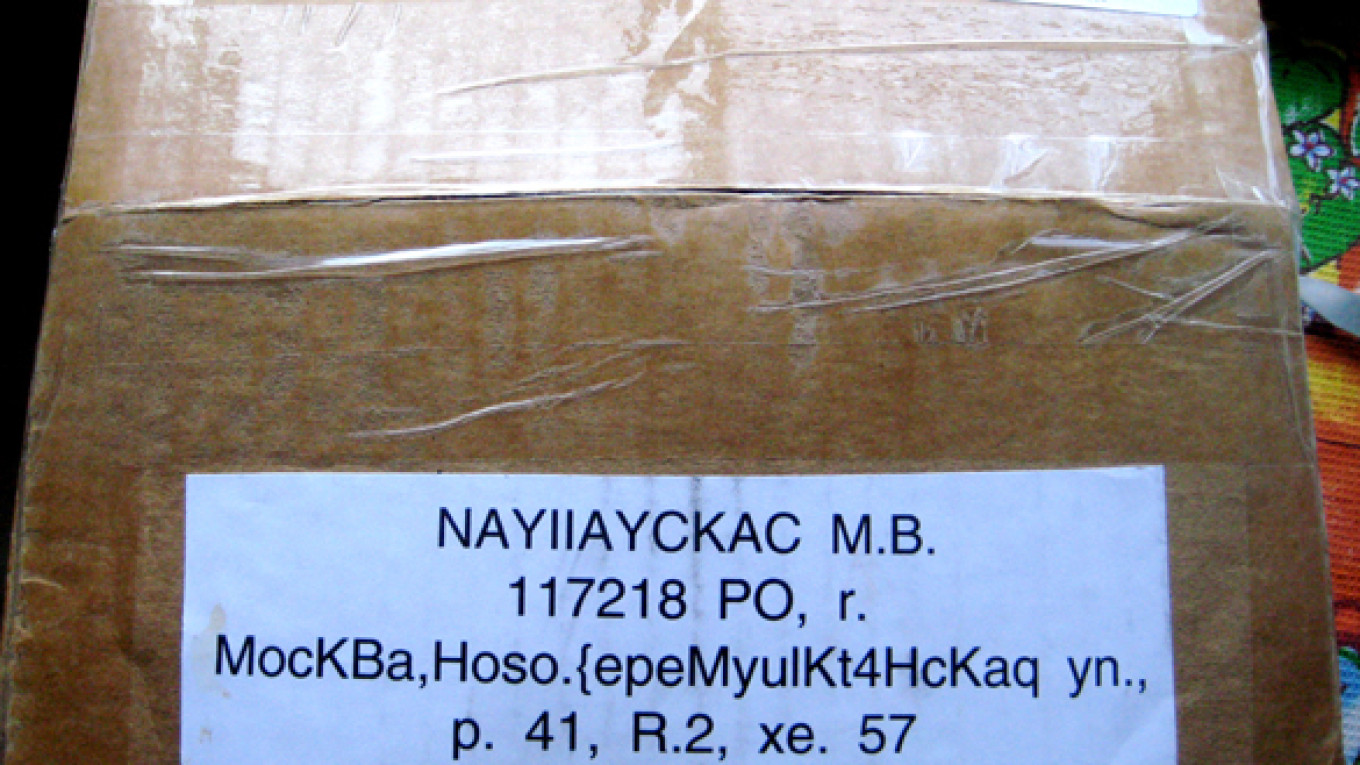???µ???µ?€?µ?????????????µ: the untranslatable
My library is filled with books about untranslatable words. But after an evening flipping through them, I’ve begun to think of them as “so-called untranslatable words,” because one way or another, they can all be translated. I mean, you can’t exactly leave a blank space in a translation and claim: ??‚?? ???µ???µ?€?µ?????????????µ (That’s not translatable). Besides, many authors consider a word untranslatable when there isn’t an exact one-word equivalent. But if that’s the criterion, then my Ozhegov Russian dictionary should be called the “Dictionary of Untranslatable Words.”
True, there is a small category of Russian words that express concepts that we don’t quite have in English, like ?°???????? (the hope or near expectation that a bad/dangerous/unfortunate/unsatisfying situation will have a miraculously happy ending). Even here it’s not that English speakers don’t sometimes experience this; I mean, what was U.S. fraud artist Bernie Madoff counting on if not ?°????????? But we English speakers haven’t codified that emotion.
In my mental filing system, there is another category of Russian words that make a distinction we don’t make in English. Take the notion of pouring. In Russian you use the verb ?»???‚?? to describe pouring anything liquid, but the verb ???‹???°?‚?? for pouring solid particles. We don’t have a separate verb for the latter in English, but that doesn’t impede clear translation: ???‹???°?‚?? ???°?…?°?€???‹?? ???µ?????? ?? ???°?…?°?€?????†?? (to pour sugar into the sugar bowl); ???‹???°?‚?? ???°???°?? ???° ?‚???€?‚ (to sprinkle cocoa on the cake).
Then there is a larger category of Russian words that are expressed in English quite easily, but with several words instead of just one. For example, you see a guy at a bar at 11 a.m., his hands shaking as he gulps down a shot of something strongly alcoholic. If this scene is in Moscow, you ask: ???????…???µ?»???µ????????? If the scene is in New York, you say: Hair of the dog? Other words like this are ?????‚???? (a 24-hour period) and ?????????‚???? (boiling-hot water).
There are also many Russian nouns, especially those conveying the absence of something, which often don’t have elegant equivalents in English. Some do, like ?±?µ?·???€?°?????‚???µ?????????‚?? (immorality), but others are awkward, like ?±?µ?·???µ?‚???????‚?? (childlessness), and others still are impossible to convey with a single English word, like ?±?µ?·?·?»???±???????‚?? (absence of malice). Here the problem in English is the convention of word formation: malicelessness is an unacceptable mouthful. But it doesn’t tax the translator to fiddle the English grammar a bit to come up with an acceptable equivalent: ?? ???µ???? ?‚?° ?¶?µ ?±?µ?·?·?»???±???????‚??, ???°?? ?? ???‚?†?° (He didn’t have an ounce of malice in him, just like his father).
The most difficult Russian words to translate are those that combine many meanings that are distinct in English. A fine (read: miserable) example of this is the adjective ?°?·?°?€?‚???‹??, which, when describing a person, includes the notions of being adventurous, passionate, competitive, eager; someone who takes risks, gets caught up in something and plays to win — whether at the gaming table, in the boardroom or in love. Here it is truly hard to capture the whole Russian word with one English adjective: ???? ???‡?µ???? ?°?·?°?€?‚???‹?? ?????€???? (He’s a very competitive player). So sometimes you go far afield: ???µ?€???†?µ ?°?·?°?€?‚???? ?·?°???‚???‡?°?»??: ???‹ ?µ?‰?‘ ???????????‚?€????, ???‚?? ????????! (His heart leapt with excitement and the thrill of the game: We’ll just see who wins!)
Are these untranslatable words? Well, they are definitely words that make you earn your fee.
Michele A. Berdy is a Moscow-based translator and interpreter.


